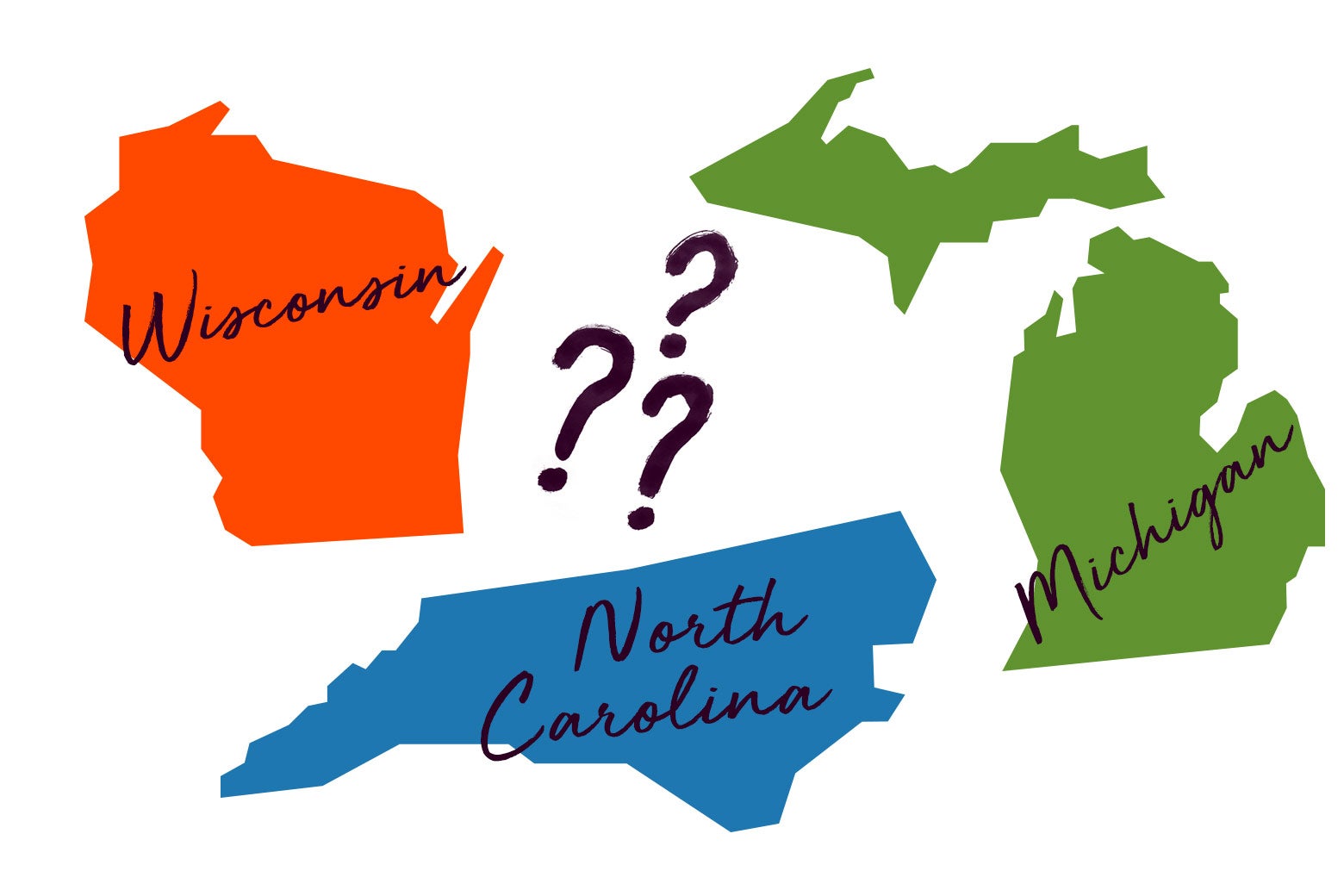In 2012, North Carolina Republicans won a “trifecta” of legislative and executive power. They used their newfound power to aggressively gerrymander the electoral map and impose new restrictions on voting. In 2016, Democrats reversed those gains, narrowly toppling incumbent Gov. Pat McCrory—and the GOP Legislature responded by stripping the incoming executive of key powers and privileges. Before Democrats took their seats, Republicans ended the governor’s control of election boards, withdrew the office’s ability to make appointments to the state school board and the University of North Carolina’s Board of Trustees, slashed the overall number of jobs appointed by the governor from 1,500 to 300, and made Cabinet nominations subject to state Senate approval.
Rather than accept the will of the voters, who empowered the new governor to take the reins of the state government, Republicans entrenched their influence and undermined gubernatorial authority in an effort to avoid and undermine democratic accountability.
At the time, this anti-democratic maneuvering appeared exceptional to North Carolina. But in the wake of major Democratic victories in the 2018 midterm elections, it seems it was the canary in the coal mine.
Democrats won important victories in Republican-controlled Midwestern states that backed Donald Trump for president, in many instances, flipping the control of state legislatures. Democrats in Michigan won close races for governor, attorney general, and secretary of state while Democrats in Wisconsin won races for governor—sweeping incumbent Scott Walker out of office—and attorney general. Instead of allowing power to shift without contest, Republicans in both states are now fighting rear-guard actions to strip authority from these offices, using “lame duck” sessions to launch what are effectively legislative coup d’états.
In Wisconsin, GOP lawmakers have advanced bills to sharply limit the power of the incoming governor, Tony Evers. The measures will restrict his ability to run public benefits programs and curb his authority to set rules on the implementation of state laws. They’ve also placed a legislative veto on any effort to ban guns from the state capitol and ended gubernatorial control over the Walker-created agency that uses taxpayer-funded loans and subsidies to attract outside businesses.
Republicans have also planned an attack on the attorney general’s office. They’ve eliminated the (recently created) office of the solicitor general, established a new legislative power to intervene in any litigation challenging a state law (even allowing lawmakers to hire their own lawyers, at taxpayer expense, to undermine the attorney general), given legislators control over money from court settlements, and given the legislature’s budget committee, rather than the attorney general, the right to decide on continued legal action against the Affordable Care Act. The scope of these changes is a sign of the state GOP’s confidence in its ability to hold the Legislature—confidence that stems from the party’s extreme partisan gerrymandering that has created a firewall such that Republicans can resist anything short of a tsunami of opposition. To that end, Wisconsin Republicans also want new limits on early voting.
It’s an almost identical situation in Michigan, where Democrats have captured all three statewide offices—governor, attorney general, and secretary of state—for the first time in 28 years. There, Republican lawmakers have introduced several lame-duck proposals for wresting power from incoming Democratic officeholders. First is a bill that would allow the legislature to intervene in any legal proceedings involving state laws that the governor and attorney general may be reluctant to defend. A separate proposal would shift oversight of campaign finance law from the secretary of state to a six-person commission with members nominated by the state Republican and Democratic parties, a move that would produce deadlock in handling those issues, likely entrenching a status quo shaped by Republican officials.
Even the best defense of these moves—that they are simply an effort to protect the gains and accomplishments of the previous majority—accepts the anti-democratic reasoning that an outgoing majority is not bound by the results of an election, and instead has the right to change the rules of the game to preserve its power.
The peaceful uncontested transfer of power is the cornerstone of representative democracy—the critical moment where we see if political actors have embraced the spirit of cooperation and adherence to the rules that make self-government possible. There are laws for how we accomplish the orderly transfer of power, but the moment itself, the choice of a party or politician to honor to the will of the voters, is an act of democratic faith—a statement of belief in the American idea. It’s why Donald Trump earned wide condemnation when he hinted, during the 2016 election, that he would not concede the election in the event of a loss to Hillary Clinton. To reject the outcome of a fair election is to directly undermine the entire democratic project.
Republicans in Michigan, Wisconsin, and North Carolina haven’t gone as far as to challenge the results of their respective elections, but their actions, which serve to hamstring the incoming body of duly elected officials, are movement in that direction. In national politics, Republican lawmakers are openly questioning the legitimacy of the Democratic House of Representatives victory, casting ordinary acts—the counting of ballots—as potentially insidious. Indeed, much of the Republican Party has already embraced voter suppression, extreme gerrymandering, and other methods to preserve legislative majorities in the face of popular opposition. The lame-duck power grab is just a natural next step.
For all the attention on Donald Trump as a threat to American democracy, it’s these actions—from ordinary, almost anonymous, Republican politicians, uncontested by anyone of influence in the party—that are much more ominous. It’s one thing to jockey for partisan advantage, it’s something much more dangerous to treat democracy like a game of Calvinball, where the rules only count when they suit your interests.
